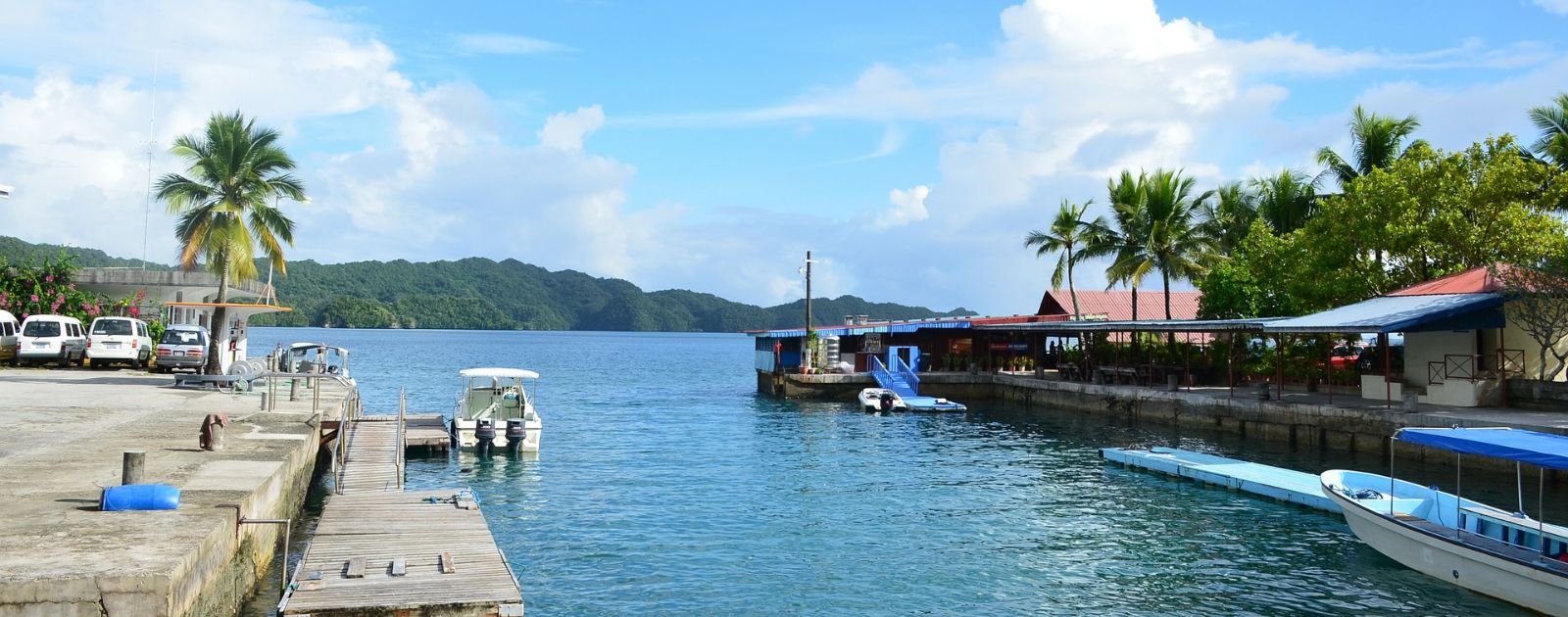Micronesia
Micronesia is a beneficiary of the Standard GSP. With a per capita income of $4,166 in 2024, the World Bank classifies Micronesia as a lower middle-income country. Total EU imports from Micronesia amounted to about €369,000 in 2024. Given the low export amounts, the country uses GSP preferences only to a limited amount; preferential imports in 2024 were about €50,000.
What is the GSP?
The Standard GSP targets developing countries that are classified by the World Bank as lower or lower-middle income countries and which do not have equal preferential access to the EU market through any other arrangement. Standard GSP beneficiary countries can benefit from duty suspension for non-sensitive products as well as duty reductions for sensitive products across approximately 66% of all EU tariff lines.

At a glance: EU preferential imports from Standard GSP beneficiary countries (2024, € million)
0.1M (2024)
Population
Federal Republic
Government
0.7% (2024)
GDP Growth
5.4% (2024)
Inflation
$ 0.5B (2024)
GDP
Facts about Micronesia's economy
Island Economy
Micronesia is a small island nation in the western pacific that consists of more than 600 islands. This fragmentation and the remote location pose significant challenges to the countries' economic and social development. Subsistence farming and fishing remains the main economic activity for the majority of the population.
Export Products
Micronesia's most dominant export products are fresh and frozen fish, including for example skipjack, tuna, anchovies, and different kinds of crustaceans.
Trade Partners
Micronesia's imports originate mainly from China and the US.
Economic Structure
The service sector (69% of GDP in 2023), mainly driven by government services such as the sale of fishing licenses, is an important source of income for the economy which is otherwise mainly driven by small-scale farming and fishing. The main agricultural products are taros, coconuts, bananas, and breadfruit.
Usage of GSP Preferences
71% of EU imports from Micronesia were eligible for duty reductions granted by the Standard GSP in 2024. Micronesia's utilisation rate stood at 18%.
Trade with the EU
Total trade with the EU amounted to €3 million in 2024.
Micronesia and the EU
Imports from Micronesia by product section (2024, € million)
Imports from Micronesia over time (€ million)
MICRONESIA AND THE EU GSP
Economic Impact
71%
Share of Micronesia's exports to the EU that were eligible for GSP preferences in 2024.
18%
Micronesia's preference utilisation rate in 2024.
29%
Share of zero-duty imports from Micronesia in 2024.
Preference utilisation and export diversification
EU imports from Micronesia (€ million)
Preference utilisation (%) vs. total eligible imports (in € million)
EU imports from Micronesia are small and thus vary considerably from year to year. Micronesia’s preference utilisation rate tends to be low, primarily in response to the limited exports to the EU overall. With preference eligible exports being at less than €0.5 million and a utilisation rate of 18% in 2024, the value of preferential imports from Micronesia was below €50,000.
The largest product sections under the GSP (€ million, 2024)
The value of EU imports from Micronesia is very small. Fish and crustaceans are the only product group currently imported using GSP preferences. They increased strongly, by more than 200% over the period 2022 to 2024, but remain limited in absolute terms: the value was less than 50 thousand euros in 2025. 100% of garments imports from Micronesia - constituting the largest eligible product group with a value of 147 thousand in 2024 - are eligible for GSP preferences, yet the utilisation rate is 0%.
SUSTAINABLE DEVELOPMENT
Micronesia has ratified two of the seven UN conventions on human rights listed in the GSP Regulation but none of the core ILO conventions on labour standards. As a beneficiary of the Standard GSP, Micronesia's preferential access to the EU market is not conditional on the ratification of international conventions. In addition, Micronesia has ratified six of the eight conventions on environmental protection listed in the GSP Regulation and all four conventions that address good governance issues, notably on drug trafficking and corruption.
Core international conventions on human rights and labour standards
Ratified
- Convention on the Elimination of All Forms of Discrimination Against Women (1981)
- Convention on the Rights of the Child (1990)
Not Ratified
- Convention on the Prevention and Punishment of the Crime of Genocide (1948)
- International Convention on the Elimination of All Forms of Racial Discrimination (1969)
- International Covenant on Civil and Political Rights (1976)
- International Covenant on Economic Social and Cultural Rights (1976)
- Convention Against Torture and other Cruel, Inhuman or Degrading Treatment or Punishment (1987)
- Convention concerning Forced or Compulsory Labour, No 29 (1930)
- Convention concerning Freedom of Association and Protection of the Right to Organise, No 87 (1948)
- Convention concerning the Application of the Principles of the Right to Organise and to Bargain Collectively, No 98 (1949)
- Convention concerning Equal Remuneration of Men and Women Workers for Work of Equal Value, No 100 (1951)
- Convention concerning the Abolition of Forced Labour, No 105 (1957)
- Convention concerning Discrimination in Respect of Employment and Occupation, No 111 (1958)
- Convention concerning Minimum Age for Admission to Employment, No 138 (1973)
- Convention concerning the Prohibition and Immediate Action for the Elimination of the Worst Forms of Child Labour, No 182 (1999)
Additional Conventions
- Montreal Protocol on Substances that Deplete the Ozone Layer (1987)
- Basel Convention on the Control of Transboundary Movements of Hazardous Wastes and Their Disposal (1989)
- Convention on Biological Diversity (1992)
- The United Nations Framework Convention on Climate Change (1992)
- Stockholm Convention on Persistent Organic Pollutants (2001)
- Kyoto Protocol to the United Nations Framework Convention on Climate Change (1998)
- United Nations Single Convention on Narcotic Drugs (1961)
- United Nations Convention on Psychotropic Substances (1971)
- United Nations Convention against Illicit Traffic in Narcotic Drugs and Psychotropic Substances (1988)
- United Nations Convention against Corruption (2004)
EU-Micronesia Bilateral Development Cooperation
DG INTPA
Access all info about EU-Pacific Islands Countries relations on the International Partnerships website.
